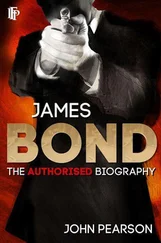Preparatory and public school, albeit minor, provided an unlikely background for a professional comedian who would go on to achieve mass appeal. On radio and television the Hancock character often goes to great pains to recover his imaginary past – scholastic, military, ancestral, professional – by asserting a status he apparently never had. Had his true educational history been common knowledge, the radio episode The Old School Reunion , in which Tony regales Sid, Bill and Hattie with his boyhood triumphs at ‘Greystones’ – ‘seven of the happiest years of my life: started off as a fag and worked my way up to head cigar’ – might not have been as funny, even if the dénouement does insist that he turned out to be the worst school porter they ever had. Galton and Simpson also indulged his passion for sport in many an episode. It is comforting that their grandiose Roy of the Rovers soliloquising on his behalf was rooted in a certain schoolboy truth: ‘Picture the scene – Wembley Stadium 1939 … the ball was cleared high in the air – I caught it on my forehead – balanced it there – tilted my head back and with my nose holding it in position I was off. Past one man, past two men, forty-five yards, the ball never left my head. I was holding the lace in my mouth …’ But his soccer skills were nothing to his cricketing ability. He claims he is known in cricketing circles as ‘Googly Hancock’, and not as Bill Kerr suggests because of the way he walks: ‘Perishing Australians! What do they know about cricket, anyway?’ snorts Hancock with disgust.
Cricket became something of an obsession, a passion that lingered until the end of his life. He developed into a fine medium-pace seam bowler, and one of his proudest moments came at a charity match in 1958 when with little dispute he bowled out Ian Craig, the Australian captain, lbw with only his second ball; unfortunately the umpire, acknowledging the crowd had come to see the touring side, gave ‘not out’. His mother recalled that as a boy, ‘He used to go round the hotel swinging his arms. He was always bowling at something.’ It also provided the defining bond between the two brothers, in spite of the age gap between them. ‘I suppose,’ says Roger, ‘that between seven and ten I got to know him better because we played a lot of cricket in the yard at the back of the hotel.’ His real-life athletic prowess would have especially pleased his father, who had engrained the love of sport in his son. Among his other accomplishments Jack had been an extremely good billiards player, a superb golfer and a boxing expert. He had coached boxing on an ad hoc basis at Durlston Court School and boasted a certain notoriety as a licensed boxing referee officiating at tournaments at the Winter Gardens, the Stokewood Road Baths, and elsewhere locally. His youngest son claims that he was ‘the most unpopular referee in Hampshire – as soon as he was announced, he was booed’. Tony had his own memories: ‘Regularly we trotted along to his fights, sat ourselves down in free ring-side seats and promptly stood up and booed every decision he gave. Very popular we were, I don’t mind telling you.’
In his Face to Face interview Tony made it quite clear why he left Bradfield: ‘I wanted to get into the theatre … I felt I could do it somehow … I don’t know why really.’ He emphasised to John Freeman that he had wanted to be a comic for as long as he could remember. Ever disparaging of his appearance, he added, ‘perhaps looking like this it was perhaps the only thing I could do’. He would not be the first comedian to turn such a deficiency into a workable option. At another level, however, one needs to jump back to when he was around six or seven years old to discover the emotional heart of the matter. There would have been no single moment of annunciation. Whatever the schools he attended, the most engaging, most enduring part of his education occurred as he fell under the continual spell of the variety artists who clustered around his father in the hotel bar in the early 1930s. In later life he revealed that he had the measure of them exactly: ‘They fascinated me. Those old pros were so much more extrovert than people in the business today. It seemed as if they would go into an act at the drop of a hat. They were different from any other kind of people I had ever met in my life. They seemed to get so much more out of life simply by being alive.’ In later years he would parody the world of ‘no business like show business’, but he never lost his respect for the professionalism of the variety trade that catered for a million eventualities in the tireless round from one venue to another.
It was a significant time in the development of British entertainment. A new breed of performer was breaking through in variety, a more sophisticated type whose talent, often nurtured in concert parties, had been lifted to success in the radio studios of the day. In comedy a more sophisticated approach underpinned humour that still somehow managed to remain accessible to a wider audience, as the Oxbridge satirical movement would thirty years later. How could a boy of impressionable years not be impressed by both Pavilion favourites and Hancock hotel patrons like Norman Long, billed as ‘A Song, a Smile and a Piano’, the Western Brothers, listed as ‘The Singing Songwriters’ with their admonition, ‘Play the game, you cads,’ and Gillie Potter, ‘The Squire of Hogsnorton’, with his erudite ramblings about his mythical but oh-so-real village? Their billing matter beckoned as Tony gravitated towards his destiny. The week commencing 3 October 1933 was a red-letter one. Placarded on the posters around town as ‘England’s Premier Radio Stars in Person’ were the ‘In a Spot of Bother’ double act Clapham and Dwyer, Tommy Handley of later ‘ITMA’ renown, and Elsie and Doris Waters all wrapped up in one bumper fun parcel. The last two were especially significant with their portrayal of ‘Gert and Daisy, the Radio Flappers’, comedy where the accent was less on jokes, more on characterisation as the public seemingly eavesdropped on a conversation driven by the minutiae of existence, the tedium of bus queues, shop queues, cinema queues, in short the sluggish inertia of suburbia writ large. No comedian would come to embrace those aspects more effectively than the adult Hancock.
Looking back from the vantage point of his own success Hancock would single out the occasional act. The select members of his extended dream family included ‘Stainless’ Stephen, billed proudly as ‘The British Broadcasting Comedian’, a Sheffield-based performer who knew Jack Hancock extremely well. His speciality was a form of ‘punctuated patter’, articulating the symbols that add meaning to the words in a way that predated Victor Borge’s splendid verbal games for a later generation: ‘Somebody once said inverted commas comedians are born comma not made. Well … slight pause to heighten egotistical effect comma … let me tell my dense public (innuendo) that I was born of honest but disappointed parents in anno Domini eighteen ninety something … end of first paragraph and a fresh line.’ A sometime schoolmaster whose real name was Arthur Clifford Baines, he heightened the effect on stage by wearing a costume that embraced a stainless-steel waistcoat and a bowler hat with steel rim to match. Hancock later acknowledged that by listening to Clifford he first learned the importance of timing in lifting a relatively trite script to a more exalted level. Moreover, according to Tony, it was ‘Stainless’ Stephen who ‘gave me my first whiff of greasepaint by taking me behind the scenes at the Bournemouth Pavilion Theatre. That was a magic night for me and thereafter I made a beeline backstage at every opportunity.’ Recently completed in 1929, the Pavilion Theatre on Bournemouth’s Westover Road rose majestically in its commanding position like a red-brick Taj Mahal. His school uniform soon became as familiar a sight in the wings as the stage manager’s pullover. One incident there loomed large in the notes he made in 1962:
Читать дальше












